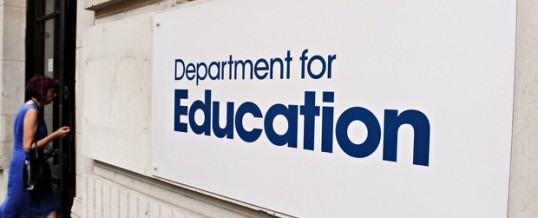By Gavin Mackintosh-
A committee of MPs have accused the Department for Education of having “set local authorities up to fail” in a critical report on the state of education for pupils with special educational needs and disabilities.
The parliamentary education committee have rebuked the government a catalogue of errors, including failing to ensure accountability of local authorities by overseeing useful reforms introduced to improve the education of pupils with special needs. The group accused the Department Of Education of leaving it to parents and the courts to police the whole system. They accuse the department of leaving out important issues in its administration of money, and its failure to provide extra money when needed.
The committee said the funding shortfall had contributed to schools and councils failing to meet children’s needs. The report acknowledges the good intentions of the reforms made by The Department Of Education but says, many children with special educational needs and disabilities are being let down on a daily basis. Stretched council budgets had subjected pupils with special education needs and disabilities (SEND) without the support they need.
The report adds new pressures on the Department Of Education who have played a significant role in motivating schools to set high standards for mainstream schools and academies. In conjunction with Ofsted who regularly inspect schools and make recommendations for progress, primary and secondary schools across the Uk have been rising to high academic standards . Schools for pupils with special needs can do with a lot more help and continued supervision.
COMMITTEE
The Committee added that ministers had not properly considered the increased costs and pressures that the duty to maintain an EHCP to 25 would place on local authorities and their staff, and schools and colleges”.Failures of implementation had resulted in “confusion and at times unlawful practice”, as well as “bureaucratic nightmares, buck-passing and a lack of accountability”, the report states.
It said there was further lack of clarity about who is responsible for paying for what, with some schools and local authorities footing the bill for interventions that should be provided by the health services”.MPs also accused the DfE of failing to take enough responsibility for ensuring its reforms are overseen, and that practice in local authorities “is lawful, that statutory timescales are adhered to, and that children’s needs are being met”.
“We are concerned that the department has left it to local authorities, inspectorates, parents and the courts to operate and police the system. There is a clear need for the department to be more proactive in its oversight of the way in which the system is operating.”
Robert Halfon, a Conservative MP and former education minister , said that the “good intentions of the reforms, many children with special educational needs and disabilities “are being let down day after day”.
“Many parents face a titanic struggle just to try and ensure their child gets access to the right support,” he said.
“Families are often forced to wade through a treacle of bureaucracy, in a system which breeds conflict and despair as parents try to navigate a postcode lottery of provision. A lack of accountability plagues the system as local authorities, social care and health providers too frequently seek to pass the buck rather than take responsibility for providing support.”
He demanded radical changes to inspection, support for parents, and clear consequences for failure to ensure the 2014 act delivers as the government intended.
A DfE spokesperson said:
”the report showed no child should be held back from reaching their potential, including those with special educational needs.
“That’s why we recently announced a £780 million increase to local authorities’ high needs funding, boosting the budget by 12% and bringing the total spent on supporting those with the most complex needs to over £7 billion for 2020-21.
“This report recognises the improvements made to the system over five years ago were the right ones, and put families and children at the heart of the process. But through our review of these reforms, we are focused on making sure they work for every child, in every part of the country.”
Ofsted’s new inspection arrangements have a strong focus on provision and outcomes for pupils with SEND, setting an expectation that in a ‘good’ school all pupils, including those with SEND, benefit from a broad and ambitious curriculum and achieve the best possible outcomes.
Complaints about schools are already investigated and there are established mechanisms for parents to resolve disagreements with local authorities.
“ This reports recognises the improvements made to the system over five years ago were the right ones, and put families and children at the heart of the process”.
“But through our review of these reforms, we are focused on making sure they work for every child, in every part of the country.”Ofsted’s new inspection arrangements have a strong focus on provision and outcomes for pupils with SEND, setting an expectation that in a ‘good’ school all pupils, including those with SEND, benefit from a broad and ambitious curriculum and achieve the best possible outcomes.
• Complaints about schools are already investigated and there are established mechanisms for parents to resolve disagreements with local authorities.

